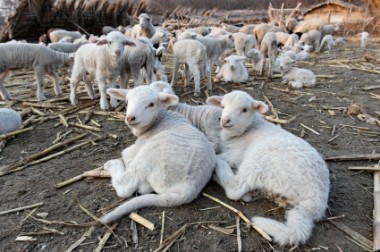
ב''ה
 Subscribe to our
Subscribe to ourA Gentile is only liable for a transgression of the Noahide Commandments in two ways. (a) If he performed the forbidden act knowingly. (b) If he knew that there is a significant probability that he might be performing the forbidden act. (Committing unintentional homicide through negligence is an exception.)
Usually, there is only a small chance (much less than 50%) that any piece of commercial meat sold in a store or served in a restaurant would have been cut from an animal while it was still alive. So when you get a random package of meat in a store or a meal in a restaurant, it’s very unlikely (less than 50%) that you’re eating a piece of forbidden meat. Therefore you could not be liable for anything on that account.
This is certainly the case if the meat is from a slaughterhouse that follows practices that make it very unlikely that butchering of an animal could begin before the animal’s heart permanently stopped beating. (This applies regardless of whether or not the animal was stunned.) This requires that there are inspectors to make sure that those practices are followed.
On the other hand, there are some animal parts that are almost always taken from living animals. Common examples are testicles (e.g., from castrated bulls) and bobbed tails (e.g., from sheep and dogs). Those parts should not be eaten unless one knows with certainty that the meat before him was not taken from a live animal.
These points are explained in Part IV of the book The Divine Code by Rabbi Moshe Weiner:
https://asknoah.org/books/the-divine-code
The book also explains that for any meat that is reliably kosher for Jews, there is definitely no chance that it could be forbidden for Gentiles in regard to the requirements of the Noahide Code.
Also see our web pages about our discussions on animal welfare with Dr. Joe Regenstein [1] and Dr. Temple Grandin.
